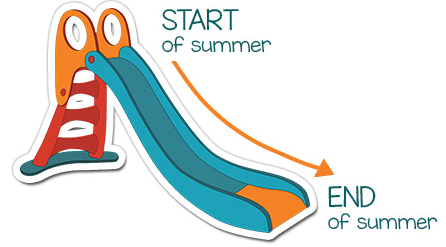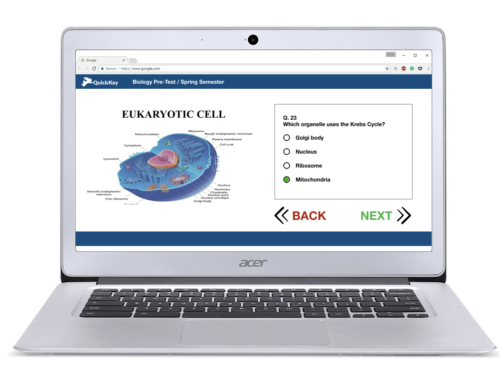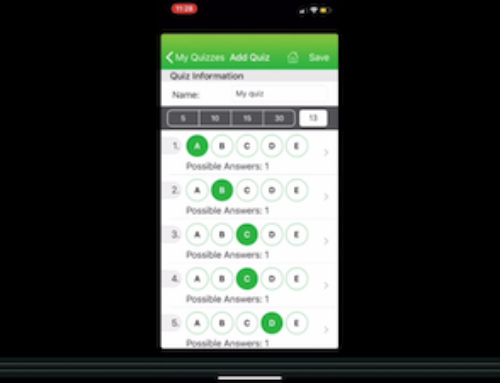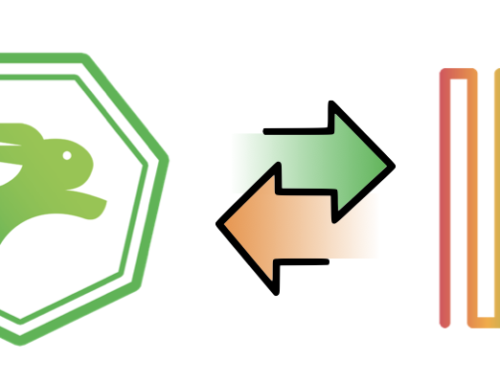What is summer learning loss?
Summer learning loss is the process by which students regress academically during the summer months. According to research by the Brookings Institution, students can lose as much as 30% of a school year’s academic attainment over the course of July and August, due to the lack of focused academic practice and structured learning activities during their time away from school.
As a teacher, summer learning loss can be a major issue, with some students ready to learn, and some students needing remediation before they can be expected to master the very first lessons of the fall curriculum.
How to use quick data-gathering to get ahead of summer learning loss
So how can you manage summer learning loss as you start the school year? First, it is critical to know where students are academically. Ideally, you would discover this using a short assessment of skills and knowledge, so you are sure you know exactly where each students stands, and what they need in order to succeed in the new year. It is impossible to overstate the importance of collecting data about students’ current knowledge and skills, that you can review yourself, with students (and even their families) and with your teaching team and administration. With the data, it is easy to communicate what is needed to all relevant parties. But without it, communication is difficult, and the best action steps are not clear.
Unfortunately, without real time data, teachers will be left to guess or assume where students are academically. If students have experienced summer learning loss they will not be prepared to begin the year on grade level and many will begin far behind. Moreover, if students have experienced summer learning loss then they will need remediation and a thorough review of prior material. In fact, many students may already require additional school based support to improve their overall academic ability and summer learning loss exacerbates this challenge.
My experience using rapid feedback to adjust teaching and learning
As a turnaround school principal, one successful strategy that I used to combat summer learning loss was to use rapid data to immediately impact instruction, especially during the first weeks of school. Using the data from formative assessments (such as exit and entry tickets), our team planned for review and remediation learning activities during the first two months of the school year. By collecting rapid classroom assessment data in the key content areas of math and reading, teachers were able to accurately assess the academic levels of their students and use that data to immediately guide their classroom instruction, additional tutoring, or self-guided learning using a variety of digital learning tools, which allows teachers to remediate students in a personalized way that matches each student’s needs.
This strategy was successful as it provided an opportunity for our students to “reacclimate” to the school environment and they were met with instruction on their level. In addition, this strategy also provided an opportunity for our teachers to use data to guide their initial classroom instruction and focus their teaching efforts. Not only did this strategy help to counteract the effects of summer learning loss but it also prevented teachers from teaching new content to students without activating their prior knowledge.
Tools and strategies for getting ahead of summer learning loss
Every school and every classroom are different. What strategies and tools will work best for you? While almost every teacher knows about online apps like Starfall and ABC Mouse, and about adaptive testing solutions like iReady, these solutions also have some drawbacks: they are impersonal, they don’t necessarily make students excited and engaged with school, and they may not be aligned with what your students need. They draw students away from important class time with their teacher and peers, and plop them in front of a computer. While students might love the idea of screen time , studies show that in-class screen time is detrimental to students’ mental and physical health.
Instead, consider a more human-centered approach to addressing summer learning loss by using a rapid classroom assessment tool to collect learning data, and then working with your colleagues to develop a plan that remediates students with the unique inspiration and skills, and talents that only a real, live teacher can provide!

About the Author
Marlon Davis is a school turnaround specialist who trains principals on leadership, parent involvement, change management, and data-driven instruction. A former teacher, school principal and charter school executive director in Cambridge, Massachusetts, Mr. Davis holds an M.Ed. in education leadership from the Harvard University Graduate School of Education.




